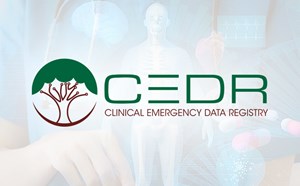
Informatics Initiatives
Informatics Initiatives Of Interest To The Section Membership: National Quality Forum, National COVID Cohort Collaborative (N3C)
While the COVID pandemic tests our mettle as healthcare providers, the pandemic provides a rallying call for the informatics community. As informaticians, we've championed the need for rapid availability of up-to-date data about our patients. We've argued we need the data to support knowledge discovery and the ability to rapidly deploy updated policies and procedures in EHR based clinical decision support modules. Part of the job for many members of the ED informatics community involves improving data quality and completeness in the EHR. I would like to share several initiatives which may help this process.
The National Quality Forum (NQF) launched an initiative to address the lack of chief compliant driven electronic clinical quality measures (eCQM). The NQF develops eCQM specifications to automate the reporting of quality measures directly from the EHR. For automated reporting to work, the necessary data elements need to be included in the EHR and collected during the patient encounter. The data elements need to be unambiguous and reproducible this requires a standardized, well defined terminology system.
In 2018, the NQF empaneled a group of experts to develop chief complaint based eCQM. Members of the section served on the panel[1] issuing its final report last year.[2] A major issue the panel wrestled with was the definitions for chief complaint, presenting problem and what they thought really drove resource use, the presenting clinical syndrome. The NQF Final report provides both a useful environmental scan of the current state of the art and issued thirteen recommendations concerning establishing a standard CC terminology system, developing CC based quality measures and assessing the data quality in reported results.
Out of NQF efforts to develop electronic clinical quality measures was the recognition EHR systems suffer from data quality issues in their implementation. We are all familiar with the problems inherent in reusing EHR data for reporting and research, missing data, inaccurate data, and idiosyncratic data representations. As noted by the NQF CC task force, the lack of coherent data collection impedes reuse of EHR data. The NQF is currently completing a study of EHR data quality. The resulting background environmental scan was released in May of this year[3]. The final report will be available for public review the month of September. I encourage you provide comments back to the NQF for inclusion in the published report. Watch the project site for the draft report’s release[4]
We all follow the latest numbers of COVID infections and outcomes through online portals. However, the data is suspect and often hard to interpret. The rush to publish recently led to the retraction of two large scale studies from major journals[5]. As informatics experts, we know there are better numbers in the real-world data from our EHR systems. Many of the members of the section may be involved in efforts to reuse EHR data. Initiatives such as the ACEP CEDR registry, The Clinical Translational Science Award Accrual to Clinical Trials Network or the PCORI funded Patient Centered Research Network. With the onset of the pandemic, the NIH, the CDC and leadership of these groups rapidly created a collaborative to apply their expertise to making EHR data available for research. The National COVID Cohort Collaborative (N3C) organized to collect and organize hospital data from across the nation provides a longitudinal data set to understand the pathophysiology and impact of the SARS-CoV virus.
The N3C is a development of the NIH National Center For Clinical And Translational Sciences (NCATS) Clinical Data to Knowledge (CD2H) initiative. Within weeks of the COVID pandemic, the CD2H collaboration developed a framework for a common approach to COVID data. The National COVID Cohort Collaborative (N3C) launched in March[6]. Since then, the team developed the needed data sharing agreements, IRB approvals, data use procedures and funding streams to deploy a shared repository (enclave) of structured data for studying COVID. The N3C is an open, volunteer collaboration across all aspects of informatics. The overarching goal is to collect structured, deidentified data for use by scientists to learn about COVID. As of the beginning of September, the enclave released access processes and started the first studies.
The enclave includes data with all HIPAA identifiers removed allowing access to data without a separate IRB. One exciting initiative is the creation of a synthetically derived data set matching the characteristics of the population. Synthetic data sets allow the creation of educational tools, deployment of machine learning algorithms and testing of analytic schemes by any registered user without IRB oversight. The only restriction is that users are studying COVID. To create the data enclave the team imports data sets from existing research data models including PCORnet, ACT and OMOP. The final data set is made available in the OMOP data model with an extensive set of analytic tools.
Currently, anyone may register to participate by registering on the website. Registration is free and provides access to all the collaborative workstreams and expertise. I encourage any interested investigators to sign up and join one of the many clinical study groups.
- [1] NQF Chief Complaint-Based Quality of Emergency Care website.
- [2] NQF "Advancing Chief Complaint-Based Quality Measurement Final Report" June 24, 2019. Learn More.
- [3] The NQF EHR Data Quality Final Environmental Scan released May 19, 2020. Learn More.
- [4] EHR Data Quality Technical Expert Panel. Learn More.
- [5] Soltani, P., & Patini, R. (2020). Retracted COVID-19 articles: a side-effect of the hot race to publication. Scientometrics, 125(1), 819-822.
- [6] Melissa, H., Christopher, C., & Kenneth, G. (2020). The National COVID Cohort Collaborative (N3C): Rationale, Design, Infrastructure, and Deployment. Journal of the American Medical Informatics Association. Learn More.
James McClay, MD, MS, FACEP, FAMIA
Professor, Emergency Medicine
University of Nebraska Medical Center
Email



